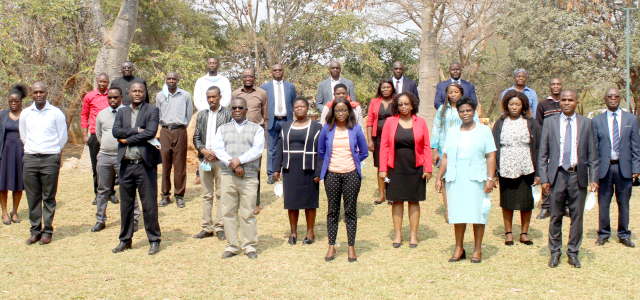Zambia’s progress in implementing Integrated Water Resource Management (IWRM) is now estimated to be at 58%, an increase from 46% three years ago.
This signals that the country has taken strides to promoting the coordinated development and management of water, land, and other related resources. Integrated Water Resource Management is essential to maximizing economic and social welfare for all, while minimising damage to the environment.
The improved outcome is largely due to Zambia’s enabling environment, the strength of the institutions working in the sector, as well as the participation of a wide variety of stakeholders.
The estimate of 58% is the main outcome from a multi-stakeholder consultation convened by the Ministry of Water Development Sanitation and Environmental Protection and the Global Water Partnership Zambia, ahead of reporting on IWRM progress to the United Nations later this year as part of Sustainable Development Goal (SDG) indicator 6.5.1.
The consultation brought together key stakeholders across government, the private sector and academia to undertake a survey to assess the status of IWRM implementation in the country. The participants assessed IWRM across four components:
- Enabling environment: 69%
- Institutions and Participation: 75%
- Management Instruments: 49%
- Financing: 40%
“The Zambian government has taken great strides to improving water and sanitation and aligning the SDG 6 goal to the 2030 vision and national development plan,” Mr Tobias Musonda, Director of Planning and Information at Zambia’s Ministry of Water Development, Sanitation and Environmental Protection (MWDSEP) said in a speech read on his behalf by the Chief Planner Mr. Melvin Sikazwe. “Zambia’s Demographic and Health Survey of 2018 (2018 ZDHS) shows a 29 % improvement in sanitation between 2014 and 2018.”
However, he went to add that the unprecedented outbreak of the global Novel Corona Virus of 2019 (COVID- 19) pandemic may negatively impact on the implementation of water and sanitation interventions aimed at accelerating the attainment of the SDG set targets.
“We commend the progress Zambia has made in IWRM and look forward to working with the country on increasing investment in water projects which create jobs and promote sustainable safe water resources for current and future generations,” said Dr Mkhuzo Chongo, Global Water Partnership (GWP) Country Manager for Zambia.
As a next step, the Zambian government will compile and process all stakeholder comments, draft the survey report, and Submit to the United Nations Environment Programme (UNEP) by 11th September 2020, following approval and signature of the Permanent Secretary for Water Development.
The Zambia consultation meeting is the first one in the second round of reporting on SDG Indicator 6.5.1 in Southern Africa which has been hosted by GWP. It forms part of SDG 6 IWRM Support Programme, which assists governments in designing and implementing country-led responses to SDG indicator 6.5.1.
The SDG 6 IWRM Support Programme is implemented with the UN Environment Programme’s guidance and coordinated by GWP in collaboration with UNEP-DHI and Cap-Net-UNDP.
The Programme is part of the broader Africa Water Investment Program that GWP is implementing in African countries.
